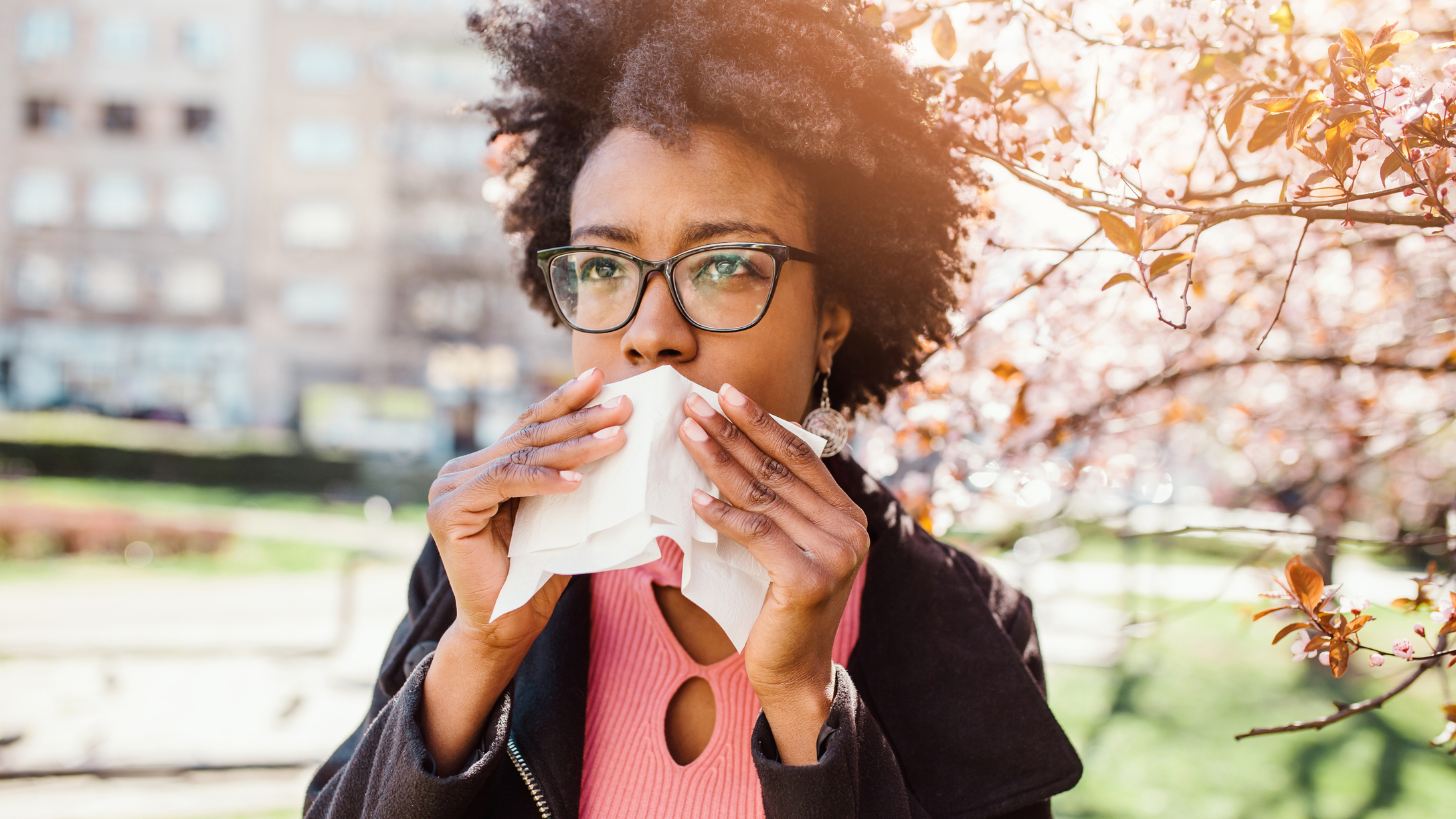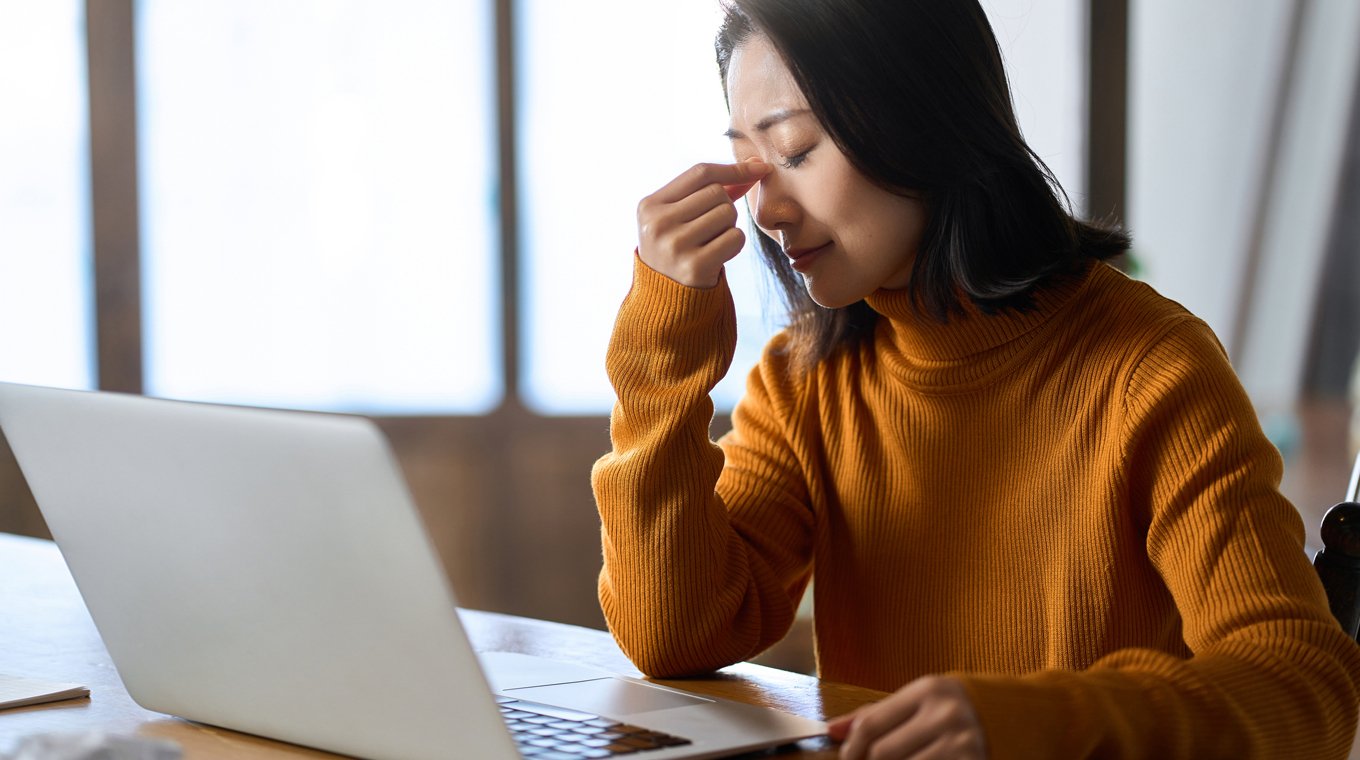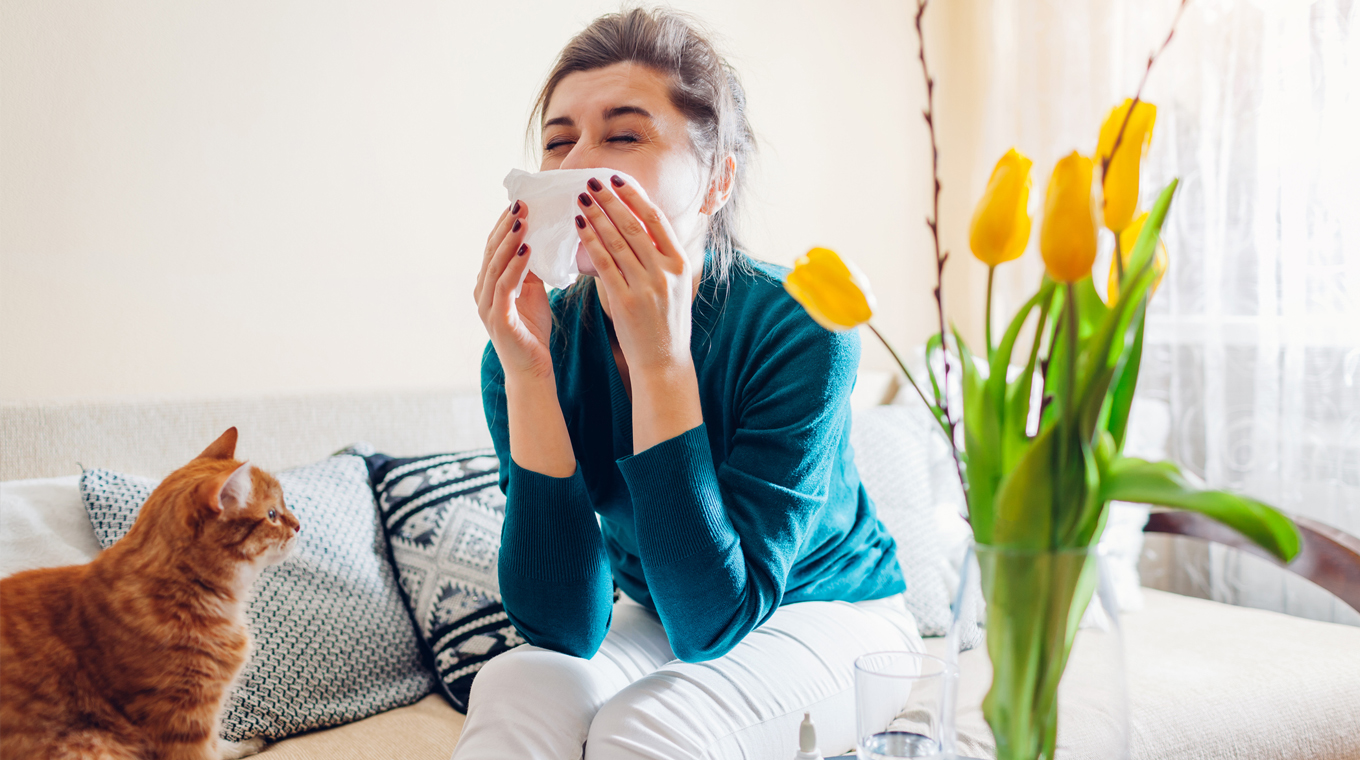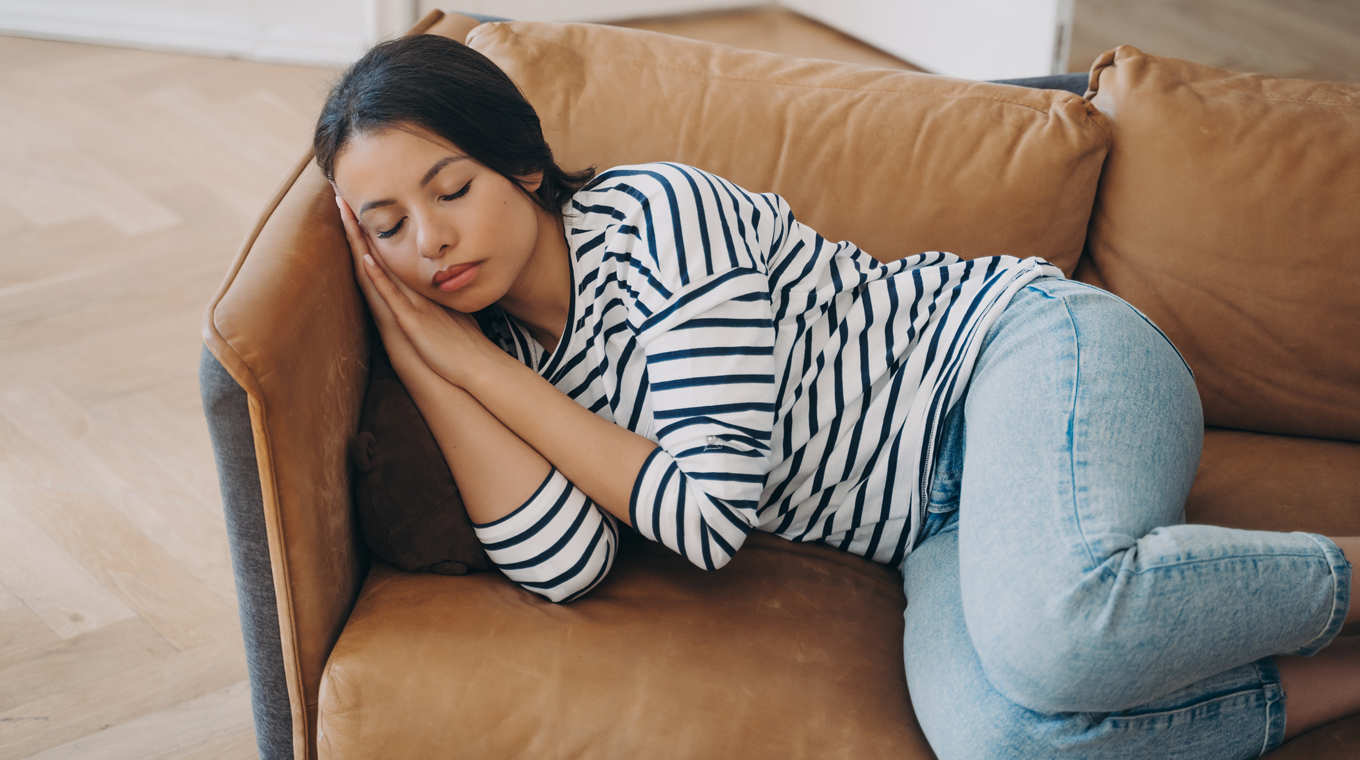
In this article
Spring allergies are also called hay fever. If you’re one of the 8 percent of Americans who experience it, you likely have to deal with the pesky symptoms that come with them. These allergies are caused by a release of tree pollen, grass, mold, and ragweed spores into the air. Let’s take a look at spring allergy symptoms and how you can treat them to get some relief.
When does spring allergy season start

Spring allergies start in February and can last through the early summer months. This is the time that winter is winding down, the weather gets warmer, and nature begins to bloom. “Allergies are the body’s response to pollen when it hits the tissue lining,” Dr. Steven Goudy, founder of Dr. Noze Best, told Mom.com. Here are the symptoms you can expect as allergy season begins.
1. Itchy eyes, nose, and throat
One of the first symptoms of having seasonal allergies triggered is the itchy eyes, nose, and throat that you’ll experience. This is a constant aggravation that doesn’t go away on its own. It can make getting through your day miserable. One way to alleviate itchy eyes is to use a cold-water compress. This soothes the eyes and provides relief. To make the compress, soak a clean cloth in cold water and lay over your closed eyes. This remedy can be repeated as often as necessary.
2. Post nasal drip
Post nasal drip is when there is drainage of fluid running down your throat. This can lead to irritation of the throat, causing it to become scratchy. To alleviate your post nasal drip, elevate your head at night to allow the mucus to drain with ease. Additionally, you can sip on warm liquids such as tea to help reduce the effects of post nasal drip. A humidifier can make a difference in keeping your entire nasal tract moist so irritants are less likely to create discomfort.
Spring allergy causes: Common symptoms to deal with

Allergies happen when your body’s immune system recognizes airborne substances as dangerous when they are normally harmless. Your body releases histamines into your bloodstream to combat the foreign substances, but these histamines lead to the symptoms of your allergies.
3. Sneezing
Sneezing is your body’s way of ejecting something that it deems dangerous to you. Sneezes are often forceful and can be very disruptive to your day. Sneezing is exacerbated when you go outside and are directly exposing yourself to allergens. One way to help alleviate sneezing in your home is to change your air filters and run the air conditioner. This reduces the amount of allergens that your body will take in leading to forceful ejection.
4. Runny nose and eyes
Allergens cause histamines to be released into your body. The histamines lead to an inflammation of your mucus glands that cause your nose and eyes to run. A hot shower can help alleviate the symptoms of a runny nose and eyes, as will using a humidifier in a room that you are working in.
Other symptoms you may experience and allergy treatments to try

Because an allergy is caused by the release of histamines into your system, taking an antihistamine can greatly reduce many of the symptoms your experience. Common antihistamines include Zyrtec Allergy, Allegra Allergy, and Claritin Allergy. A corticosteroid nasal spray can also help with nasal symptoms.
Alexandra Fung is a mom who has a family that deals with seasonal allergies. “Our first line of defense for environmental allergies has always been to minimize exposure to allergens. This means keeping our home as allergen-free as possible,” she told Mom.com.
5. Congestion
As the histamines lead to the swelling of mucus glands in your nasal passage, you can experience congestion along with your runny nose. There are many ways to battle congestion that include using a humidifier, inhaling steam, or using a saline spray. Additionally, a neti pot can help clear out mucus. Some herbs and spices such as cayenne pepper will help break up and clear our congestion.
6. Fatigue
When your allergies affect your ability to get a good night’s sleep, you can feel fatigued. Your lack of energy has more to do with dealing with other symptoms that it is a direct result of the allergies. The key is to make sure you are sleeping well by alleviating other symptoms at night so your sleep isn’t interrupted. This might mean sleeping with a humidifier, having your head elevated, and taking an antihistamine to relieve symptoms.
7. Coughing
As pollens will irritate your throat, you may experience coughing as part of your allergy symptoms. You can gain relief for coughing if you drink hot liquids with honey to soothe your throat. Steam will also help reduce the irritation to the area and lessen coughing. Ginger is also a good tea to drink as it has anti-inflammatory properties that can help open the throat and reduce irritation.
When to See a Doctor
There are times when you should consider going to a doctor to have your allergy symptoms examined. When allergy symptoms cause chronic sinus infections, excessive nasal congestion, or difficulty breathing, it is time to visit your primary care physician, who may refer you to an allergist. An allergist will help you assess and treat your seasonal allergies. Also, consult a doctor immediately if your allergies escalate and you begin to experience symptoms of serious asthma, such as wheezing or coughing after exercise, tightness in your chest, or if you are struggling to catch your breath.




